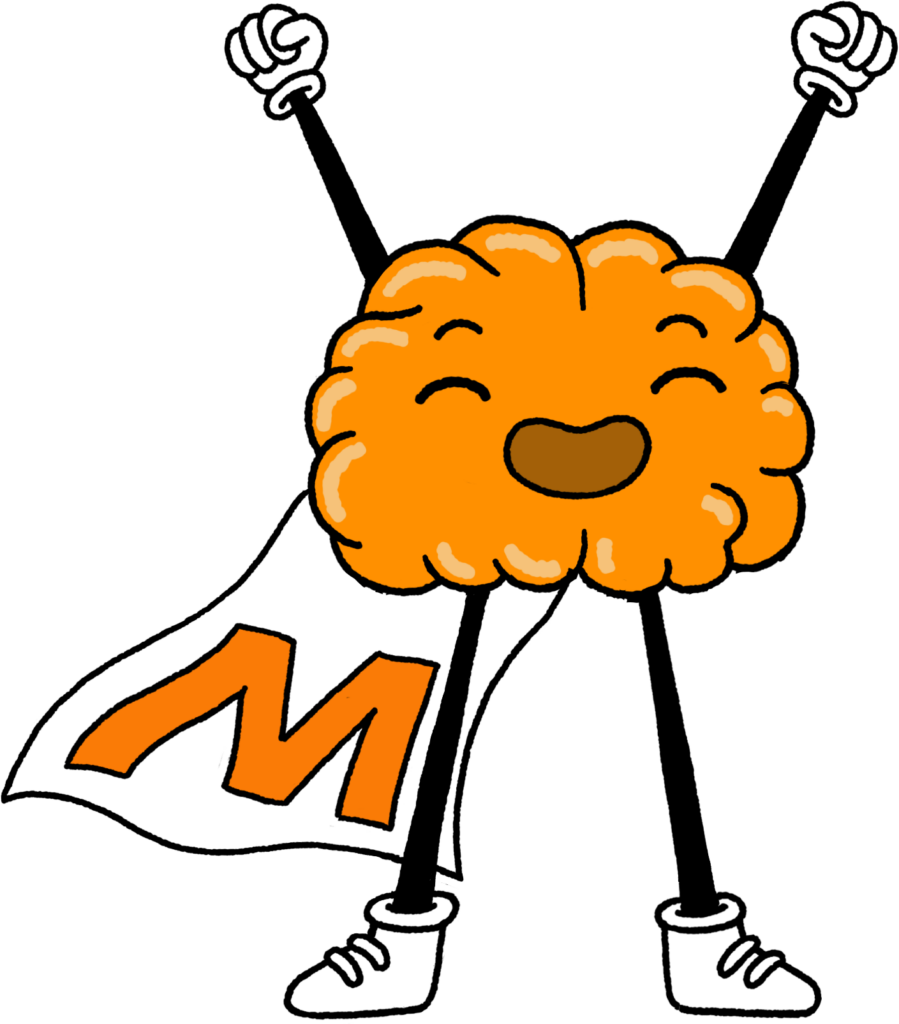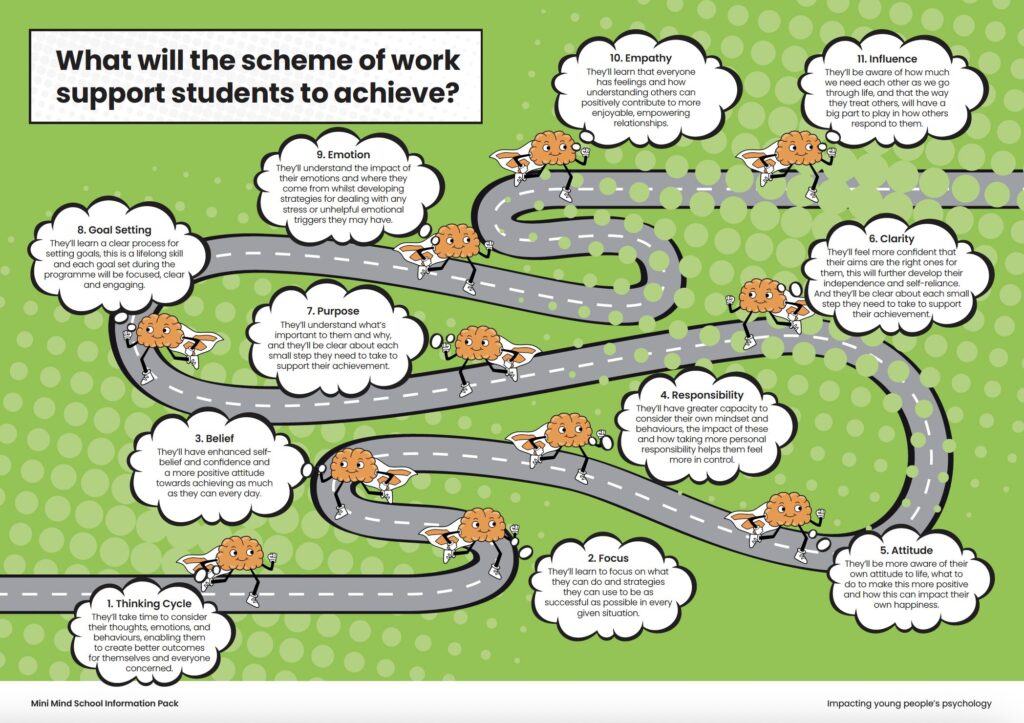Education
Mini Mind Programme
Step right up to the world of Mini Mind, where we help young children discover the most intriguing terrain of all—their own minds!

Meet Mini Mind
Bringing psychology to life, this programme is formed around our fun character, Mini Mind.
Specifically crafted for Key Stage 1 & 2, Mini Mind is a 12-hours of learning and fun that dives deep into self-discovery and understanding the world around us. Mini Mind covers 9 Minspan competencies from the Triad:
Self: Dive into the realms of Focus, Belief, and Responsibility. Here, kids learn to harness their attention, trust in their abilities, and take charge of their actions.
Life: Uncover the secrets of Attitude, Purpose, and Clarity. Children will explore how to face life with positivity, find meaning in their actions, and see things clearly.
World: Discover the emotional landscapes of Emotion, Empathy, and Influence. Our adventurers will learn how to understand and manage their feelings, show empathy towards others, and make a positive impact in their world.


Why Mini Mind?
We all know children are our future, and looking after their mental well-being is super important. Mini Mind is all about helping kids take charge of their actions, get a grip on how they think, and handle their relationships with ease and confidence. learning activities that dive into nine key areas.
National Curriculum
Mini Mind isn’t just extra learning; it fits right in with the National Curriculum, and it supports childrens’ moral and mental development, setting them up to tackle the opportunities and challenges they’ll face as they grow.
Feedback
The aim of the programme is to empower children to take responsibility for their actions and choices, provide greater understanding of how their mind works and consider the relationships around them. It’s great to see we’ve been having an impact with the work we’ve done already!